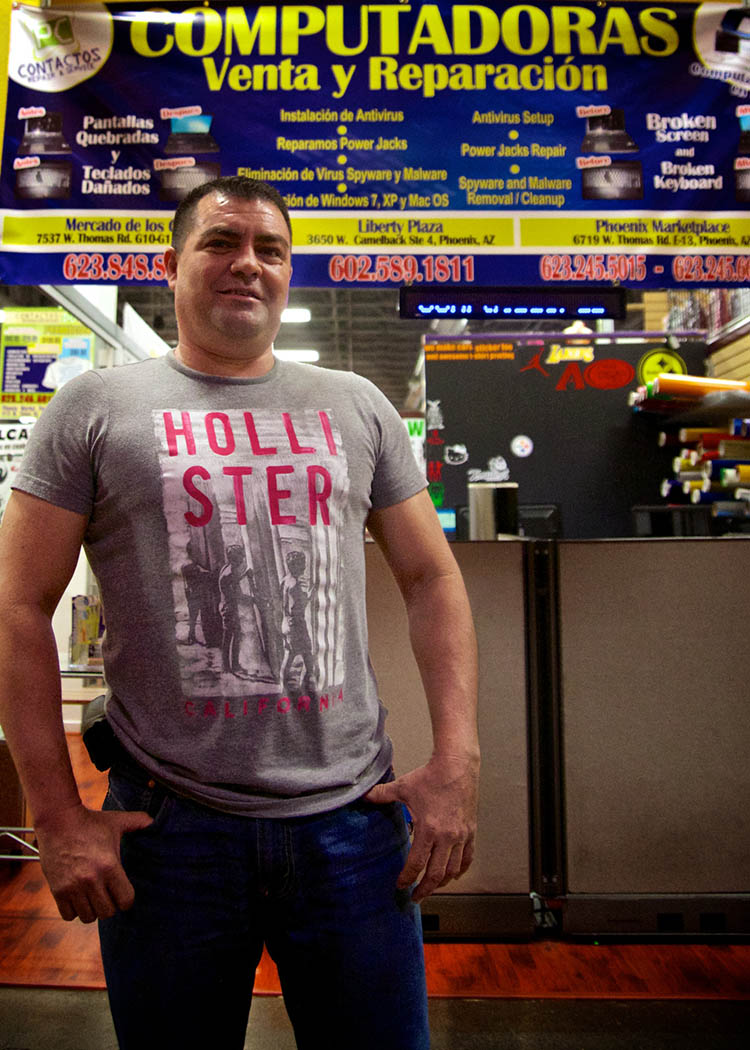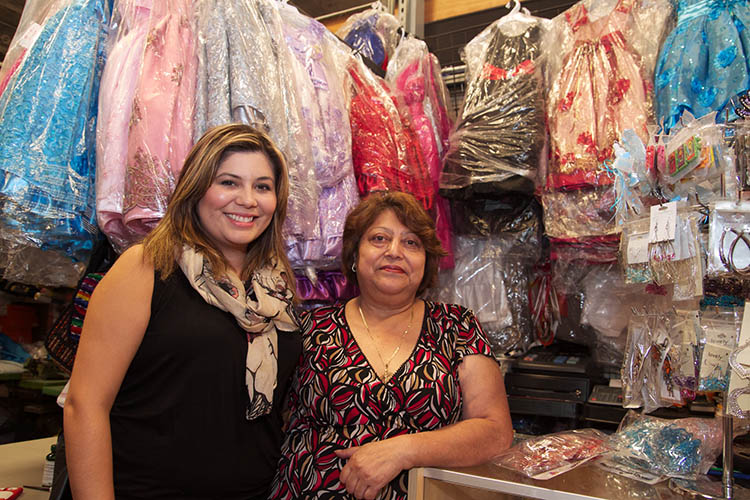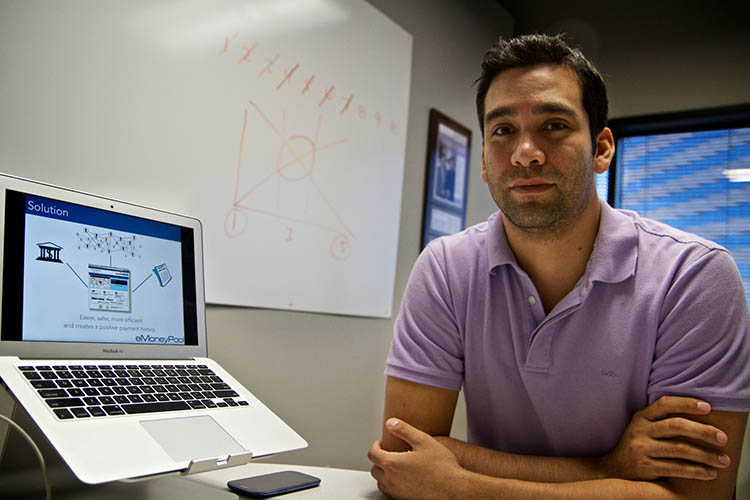Cronkite News has moved to a new home at cronkitenews.azpbs.org. Use this site to search archives from 2011 to May 2015. You can search the new site for current stories.
In Latino community, money pools a different approach to lending
PHOENIX – When Humberto Jesus Salazar needed to renovate his computer repair shop, he rounded up nine friends to meet with him once a month for 10 months.
Each agreed to contribute $200 per month and that, in a predetermined order, each person would take home all of the cash from one of the meetings. When it was his turn, Jesus Salazar had $2,000 to put toward a new sign, tile and other improvements to his business.
Olga Ramirez entered into a similar arrangement to save for her daughter’s quinceañera.
Kelly Rojas did it to make sure she had money to buy Christmas presents.
These people tapped into a money pool, an arrangement common among immigrants that’s known in the Latino community as a tanda or cundina, meaning roughly “taking a turn” or “doing a circle.”
For some participants, money pools are a way of raising capital. Others use them to save. But for all who participate, the arrangements transcend economics to bind a community where reputation is as valuable as cash.
“Anywhere you have Mexicans handling money: markets, ambulatory ice cream carts, food wagons, swap meets – they will be there,” said Carlos Vélez-Ibáñez, director of Arizona State University’s School of Transborder Studies, who has written two books on the subject.
Money pools usually involve 10 people who agree to the amount contributed, the interval of contributions and the order in which participants will reap the benefits. After everyone has a turn, the pool ends.
Similar arrangements are referred to as huis in the Chinese community, kyes among Koreans and susus among west Africans and Jamaicans.
“In a way, it’s more economic and rationalized than any rational economic approach Adam Smith could come up with,” Vélez-Ibáñez said. “But at the same time it pays attention to social relationships as being of high value. The obligations are based on reciprocity and confianza – a system of mutual trust that children learn early on.”
Humberto Jesus Salazar said he often participates in money pools of $2,000 with other merchants at Mercado de Los Cielos within Desert Sky Mall in west Phoenix, describing the arrangements as circles of trust that aren’t necessarily limited to Latinos.
“In this market, we have participants from Mexico, Guatemala, El Salvador, Chinese, Africans, Arabs – from all parts,” he said.
A money pool means different things to participants depending on their needs, Jesus Salazar said.
“It’s viewed as a loan for the people who have the first few turns, and it’s viewed as a savings account for those who have the final turns,” he said. “It’s a very nice idea, as long as the group is made of trustworthy people.”
Historically, money pools have provided immigrants access to capital and a way to save without having to deal with banks. Often lacking credit scores or financial histories, immigrants turn to what they know.
“In my culture, people don’t trust banks,” said Kelly Rojas, who operates an insurance agency at Mercado de Los Cielos. “It’s how we were raised – to save money and stash it in a cookie jar.”
Most people want to be in a money pool so they can be the first person to collect, Rojas said, but she joins for the built-in discipline to save.
“I like to be the last one,” she said. “If you’re saving $100 a week and putting in the cookie jar, you’re going to have expenses and be like, ‘Oh, I’ll just take it out.’”
And some people join money pools simply to help friends, family and coworkers with rent, weddings and other financial needs, Rojas said.
“You are helping them get ahead when they wouldn’t be able to any other way,” she said. “And it’s better than just lending someone money because they have to pay it back to the group.”
But what if someone in the group doesn’t pay?
“The person who organizes the tanda has to be on top of everything – very trustworthy,” said Olga Ramirez, a dress shop owner who organizes tandas at Mercado de Los Cielos. “They guarantee the payment, so they select who gets to participate. The organizer gets the first turn, and the least-known people get the final turns. It is a built-in safety mechanism.”
Rojas said people have an incentive to remain in good stead with the group.
“When people don’t pay, they get exiled from the community – nobody wants to talk to them,” she said. “The motivation is to be able to come back and borrow again.”
Group commitment is key to the success of money pools, according to Donelson Forsyth, a psychology professor at the University of Richmond’s Jepson School of Leadership Studies who is an authority on group dynamics.
“They key is that they are interdependent,” he said. “If one person defaults, all are injured. If they were all saving individually, it wouldn’t have the same magical effect on their overall performance.”
The community lending model inspired brothers Francisco and Luis Cervera of Phoenix to create eMoneyPool.com, an online platform for group lending and saving. The concept was selected for a 2012 grant from Seed Spot, a nonprofit incubator in Phoenix that promotes social entrepreneurship.
eMoneyPool.com charges 5 percent of the money pool’s amount to administer it and guarantee payment.
Francisco Cervera said that having grown up around money pools he and his brother know how powerful they can be but also how inconvenient they can be to manage.
“We thought more people should have access to this tool,” he said.
Through an agreement between eMoneyPool.com and Marisol Federal Credit Union in Phoenix, making payments to an online money pool on time can help participants qualify for loans.
But however people come to participate, money pools are about more than money, according to Carlos Velasco, director of Fuerza Local, the arm of Local First Arizona that promotes patronizing Hispanic-owned businesses.
“This isn’t just a value for the underserved. This is a value for all communities,” he said. “Money pools are a way to keep money recirculating locally and creating a commitment to your group and to your community. That’s the beauty of it.”









